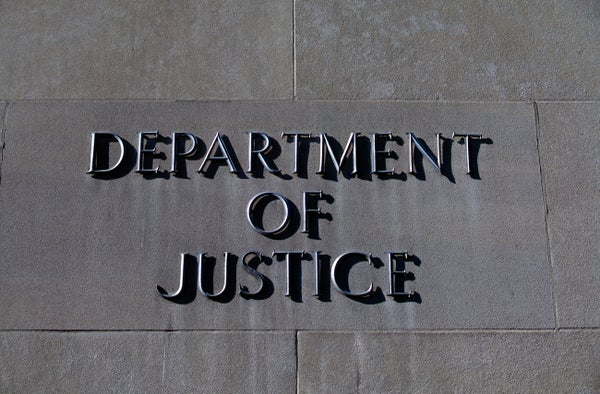CLIMATEWIRE | A San Diego man who allegedly smuggled greenhouse gases into the United States from Mexico and sold them will be the first person prosecuted under a 2020 law aimed at slowing climate change.
According to an indictment against him, Michael Hart, 58, purchased hydrofluorocarbons — chemical compounds commonly used for refrigeration — and smuggled them across the U.S. border in his vehicle, concealed under a tarp and tools.
Hart posted the refrigerants for sale on OfferUp, Facebook Marketplace and other sites, and he sold them for a profit, the indictment alleges. In addition to smuggling greenhouse gases, the indictment accuses Hart of importing HCFC-22, an ozone-depleting substance regulated under the Clean Air Act.
On supporting science journalism
If you're enjoying this article, consider supporting our award-winning journalism by subscribing. By purchasing a subscription you are helping to ensure the future of impactful stories about the discoveries and ideas shaping our world today.
Hart's prosecution is the first in the United States to include charges related to the American Innovation and Manufacturing Act, a 2020 law that prohibits importation of HFCs without permission from EPA. At the time it was passed, the bipartisan law was considered the most significant congressional action on climate change in years.
“It is illegal to import certain refrigerants into the United States because of their documented and significantly greater contribution to climate change,” said Todd Kim, head of the Justice Department’s environment division.
Illegal smuggling of HFCs “undermines international efforts to combat climate change,” said David Uhlmann, assistant administrator for EPA’s Office of Enforcement and Compliance Assurance. He noted the 2016 Kigali Amendment to the Montreal Protocol sets a timeline to reduce HFCs 80 to 85 percent by 2047.
Hart's arrest, Uhlmann added, “highlights the significance of EPA’s climate enforcement initiative and our efforts to prevent refrigerants that are climate superpollutants from illegally entering the United States.”
U.S. Attorney Tara McGrath, who represents California's southern district, called the case a “significant milestone” and predicted there will be more.
“This is the first time the Department of Justice is prosecuting someone for illegally importing greenhouse gases, and it will not be the last,” McGrath said. “We are using every means possible to protect our planet from the harm caused by toxic pollutants, including bringing criminal charges.”
Hart was arraigned Monday and pleaded not guilty to 13 charges including conspiracy, illegal importation and sale. If convicted on all counts, Hart faces up to 45 years in prison and $750,000 in fines.
HFCs — chemicals made up of hydrogen, fluorine, and carbon — are considered potent greenhouse gases and are used in refrigeration, air conditioning, foam insulation, fire extinguishing systems and aerosols. The global warming potential of an HFC can be hundreds to thousands of times stronger than carbon dioxide.
Their use has been increasing worldwide due to the global phase-out of ozone-depleting substances and increased demand for refrigeration and air conditioning.
Black market
EPA Administrator Michael Regan said at a 2021 summit that climate protections could be hindered by an HFC black market that has emerged as federal regulators have sought to cut the pollutants' use.
The United States, he said at the time, was “looking to the rest of the world to understand and learn from what other countries are doing to detect, deter and prevent illegal trade.”
Authorities in the European Union, which began a phase-out of the chemicals in 2015, have grappled with an illicit HFC market for several years.
The indictment against Hart says that at one point in 2022, he told a customer that he could "get 15 to 20 tanks per week" of various refrigerants. It says that he sold cylinders and at one point transferred $1,000 to a "co-conspirator in Mexico" for the purchase of refrigerants. In October 2022, the indictment says, he entered the United States from Mexico with 10 cylinders of "Freon 404A" concealed in his vehicle.
An interagency task force headed by EPA and the Department of Homeland Security to stop HFCs from entering the United States without purchasing allowances intercepted illegal shipments equivalent to approximately 530,000 metric tons of CO2 in the first 10 weeks of the program in 2022.
The Montreal Protocol on Substances that Deplete the Ozone Layer, a treaty adopted in 1987, required the gradual phase-out of ozone-depleting substances. The treaty contains different timetables for developed countries like the United States and developing countries like Mexico.
Reprinted from E&E News with permission from POLITICO, LLC. Copyright 2024. E&E News provides essential news for energy and environment professionals.
